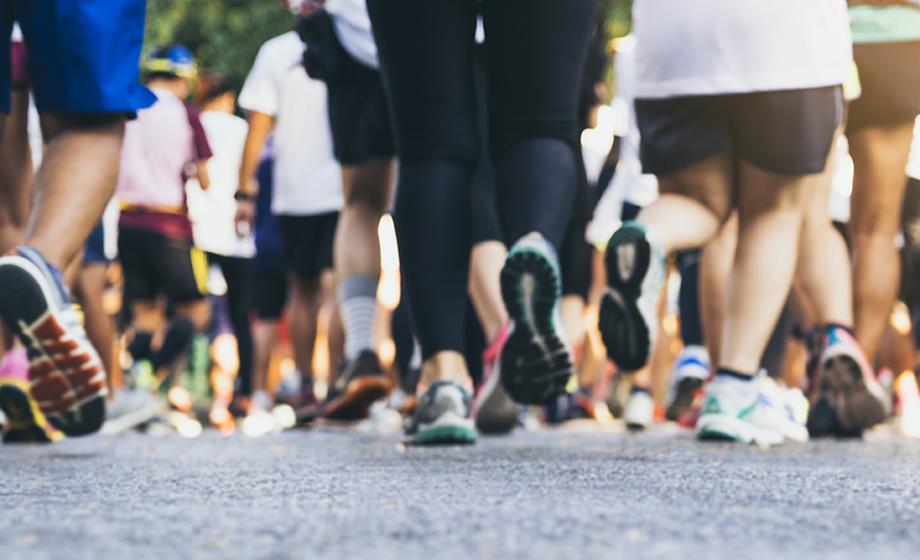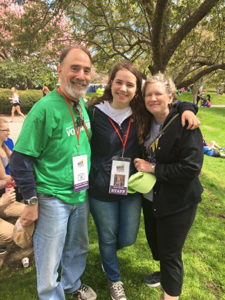
One in 10 Massachusetts households — more than 726,000 people — is food-insecure, according to the U.S. Department of Agriculture. Clark University alumna Anna Spack ’16 is working to combat the problem.
Spack, who majored in communication and culture, and Spanish, at Clark, is communications coordinator for Boston-based Project Bread. The organization’s mission is to “prevent and end hunger for Massachusetts residents of all ages.” The organization builds and promotes systems to provide food to vulnerable communities, both on a short- and long-term basis.

In her role, Spack spreads the Project Bread message through social media, the website, and with traditional media. “I love knowing that what I do is positively impacting people’s lives,” she says.
Project Bread’s biggest event is The Walk for Hunger, the annual 20-mile hike that raises money for hundreds of hunger-relief programs across Massachusetts. The walk’s 50th anniversary takes place on Sunday, May 6.
Spack took a few minutes from her busy schedule to reflect on Project Bread and the importance of the Walk for Hunger.
What drew you to Project Bread?
I’ve actually known about Project Bread since I was a little kid. I grew up in Boston and participated in the walk for 12 years. When I graduated from Clark, I was looking for communications jobs in the nonprofit world, and when I saw there was an opening at Project Bread, I jumped at the chance. Now that I’m older, I better understand the problem of hunger and its systemic causes, and I’m so glad I work for an organization that understands there is no single solution to hunger and that we must tackle the problem at its root.
Why is the Walk for Hunger so special?
The Walk for Hunger is the oldest pledge walk in the United States. It has become widely known in the Boston area, and we have many dedicated walkers who have been participating for decades. This year’s walk celebrates the history and tradition and the incredible impact it has made over the past 50 years. I have so many fond memories of walking with my family and friends, and, of course, memories of my feet killing me at the end. But my philosophy was always that if so many people face the pain of hunger every day, then I can deal with the pain of walking 20 miles for one day.
Who benefits from this event?
The money the walk raises funds hundreds of anti-hunger organizations across Massachusetts that help people who do not have enough to eat. These include food pantries, meal programs, soup kitchens, farm and garden initiatives, child nutrition programs, food rescue programs, summer meals sites, and health center hunger-prevention programs. In 2017, the walk funded 263 programs in 91 communities. Food is one of the most basic of human rights and walkers are really committed to ensuring everyone has access to it. As a result, they raise millions each year.
What would you say to Clarkies to encourage them to participate?
The walk began as a grassroots movement when a group of everyday citizens decided to take action against hunger. I think that’s something Clarkies can relate to — we believe in social justice, in speaking up for what’s right and making a difference. Even if you can’t physically be there on May 6, you can donate. And if you are able to participate, you can still register. There is nothing quite like walking down Commonwealth Avenue among a sea of people. Also, there is free food at the halfway point — just saying.


